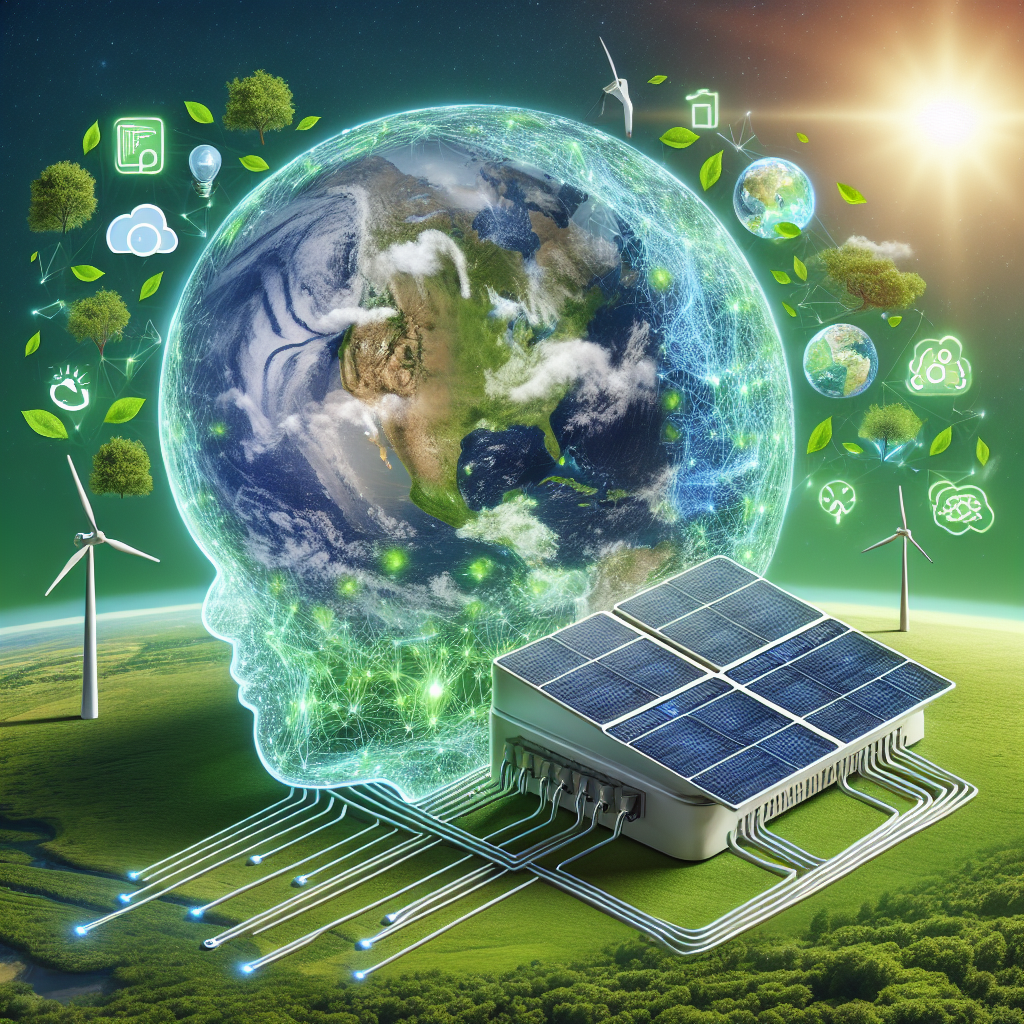The Role of AI in Climate Change Solutions
Climate change is one of the most pressing issues facing our world today. The increasing levels of greenhouse gas emissions, deforestation, and other human activities are leading to rising global temperatures, extreme weather events, and other consequences that threaten the well-being of our planet and its inhabitants. In response to this crisis, governments, businesses, and individuals are seeking innovative solutions to mitigate and adapt to the impacts of climate change.
One of the most promising technologies that is being leveraged in the fight against climate change is artificial intelligence (AI). AI refers to the simulation of human intelligence processes by machines, such as learning, reasoning, and self-correction. AI algorithms are being used to analyze vast amounts of data, identify patterns, and make predictions that can help us better understand and address the complex challenges of climate change.
There are several ways in which AI is being used to combat climate change and promote sustainable practices. One of the key areas in which AI is making an impact is in the field of energy efficiency. By using AI algorithms to optimize energy consumption, businesses and individuals can reduce their carbon footprint and lower their energy costs. For example, AI-powered smart thermostats can learn a household’s heating and cooling preferences and adjust the temperature accordingly to maximize energy efficiency.
AI is also being deployed in the renewable energy sector to improve the efficiency of solar and wind power generation. AI algorithms can optimize the placement of solar panels and wind turbines to maximize energy output, predict fluctuations in renewable energy sources, and improve grid stability. This not only helps reduce reliance on fossil fuels but also makes renewable energy more reliable and cost-effective.
In addition to energy efficiency and renewable energy, AI is being used to monitor and manage natural resources more effectively. For example, AI-powered sensors can collect and analyze data on water quality, air pollution, and deforestation, allowing policymakers to make informed decisions about resource management and conservation efforts. AI can also help predict and mitigate the impacts of natural disasters, such as floods and wildfires, by analyzing weather patterns and identifying areas at risk.
Furthermore, AI is playing a crucial role in climate change modeling and prediction. Climate scientists are using AI algorithms to analyze climate data, simulate complex climate systems, and make more accurate predictions about future climate trends. This information is essential for policymakers, businesses, and communities to develop effective strategies for adapting to the impacts of climate change and reducing greenhouse gas emissions.
Overall, AI has the potential to revolutionize our approach to addressing climate change by providing valuable insights, optimizing resource management, and improving the efficiency of renewable energy systems. However, there are also challenges and limitations to consider when using AI in climate change solutions. For example, AI algorithms are only as good as the data they are trained on, so ensuring the quality and reliability of data is crucial. There are also ethical considerations around the use of AI, such as privacy concerns and the potential for bias in algorithmic decision-making.
Despite these challenges, the potential benefits of AI in climate change solutions are vast. By harnessing the power of AI to analyze data, optimize processes, and make informed decisions, we can accelerate the transition to a more sustainable and resilient future. In the coming years, we can expect to see even more innovative applications of AI in the fight against climate change, as technology continues to evolve and new solutions are developed.
FAQs
Q: How is AI being used to monitor and manage natural resources?
A: AI is being used to collect and analyze data on water quality, air pollution, deforestation, and other environmental factors. This information can help policymakers make informed decisions about resource management and conservation efforts.
Q: Can AI help predict and mitigate the impacts of natural disasters?
A: Yes, AI algorithms can analyze weather patterns and other data to predict the likelihood and severity of natural disasters, such as floods and wildfires. This information can help communities prepare for and respond to these events more effectively.
Q: What are some of the challenges of using AI in climate change solutions?
A: Some of the challenges of using AI in climate change solutions include ensuring the quality and reliability of data, addressing ethical concerns around privacy and bias, and overcoming technical limitations in algorithmic decision-making.
Q: How can individuals contribute to climate change solutions using AI?
A: Individuals can contribute to climate change solutions by adopting AI-powered energy efficiency technologies in their homes, supporting renewable energy initiatives that use AI optimization, and advocating for policies that promote the responsible use of AI in environmental conservation efforts.

